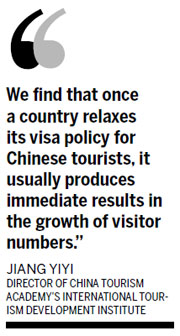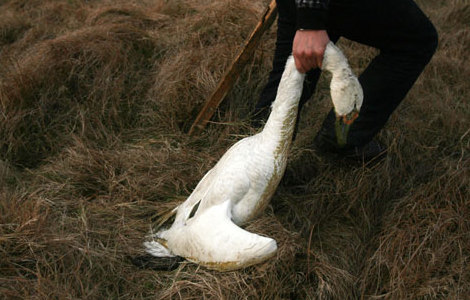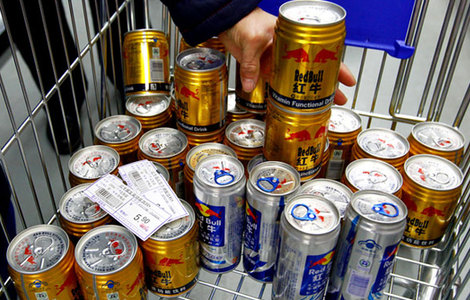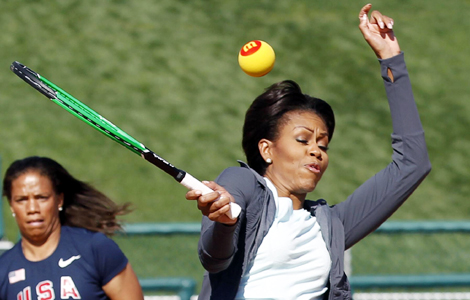US simplifies visa applications for Chinese
Updated: 2012-02-10 09:36
By Zheng Yangpeng (China Daily)
|
|||||||||||

The new initiative includes B (temporary visitors for business and pleasure), C1 (transit), F (students), J (exchange visitors) and other categories, covering 95 percent of the total visas issued by the US embassy and consulates across China, according to Locke.
The previous policy only allowed an interview waiver within 12 months of the expiration date.
In a few months, the former US embassy building in Beijing will be reopened, increasing the embassy's interviewing capacity by 50 percent.
The average waiting time for an interview has been reduced to less than 6 days.
"We expect that this will benefit tens of thousands of applicants in China, saving them time and money, and making it easier for them to travel to the United States more frequently," Locke told reporters.
On Jan 19, US President Barack Obama signed an executive order to significantly increase travel and tourism to the US, with the goal of increasing visa-processing capacity in China by up to 40 percent in 2012.
This goal, combined with previous measures announced by the US embassy to streamline the application process to allow Chinese applicants to be interviewed in a more efficient manner, is the country's latest effort to attract more visitors from emerging economies, such as China, to boost the ailing US economy, said industry observers.
Chinese tourists to the United States on average spend more than $6,000 per trip, compared with about $4,000 spent by all international travelers in the country, according to statistics from the US Department of Commerce.
More than 800,000 Chinese visitors contributed $5 billion to the US economy in 2010.
"We find that once a country relaxes its visa policy for Chinese tourists, it usually produces immediate results in the growth of visitor numbers," said Jiang Yiyi, director of China Tourism Academy's International Tourism Development Institute.
Locke, however, did not respond directly to a question on whether this initiative was aimed at boosting the US economy, saying that the 36-month extension not only applies to China, but all other countries worldwide, and the US is "responding to global concern".
US consular officers handled more than 1 million visa applications from China in fiscal year 2011 (from October 2010 to September 2011), a 34 percent increase. The growth rate accelerated to 48 percent in the last three months of 2011.
Now almost 90 percent of non-immigrant applications from Chinese nationals are approved, said Charles Bennett, minister-counselor for consular affairs at the US embassy.
The pilot program does not apply to first-time applicants. But it will free the embassy and consulates' resources to interview more first-time applicants, Locke said.
- US town ready to welcome return of special guest
- State firms need private investment
- EU 'will solve its debt crisis'
- China aims to lure foreign experts
- Envoy: VP visit will boost Sino-US relations
- ROK ship detained over toxic spill
- China to loan two pandas to Canada
- US pop queen Whitney Houston dies
Hot Topics
Kim Jong-il, Mengniu, train crash probe, Vaclav Havel, New Year, coast guard death, Internet security, Mekong River, Strait of Hormuz, economic work conference
Editor's Picks

|

|

|

|

|

|







